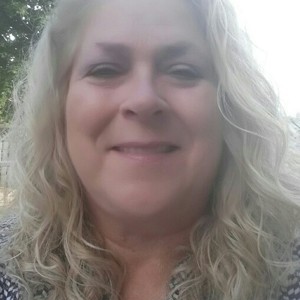
Colleen Kamps
In her four decades as a clinician and educator, Colleen Kamps has specialized in some tough topics—among them trauma, abuse, suicide, depression and anxiety, and crisis intervention.
In our First Responders Trauma Prevention and Recovery program, Colleen teaches perhaps the most difficult course of all, Trauma and Suicide. Here she shares her thoughts on the course, as well as the changes she’s witnessed in the area of first responders’ wellness.
You’ve been part of the SFU program since its inception. What motivated you to get involved?
I have been working in the helping field for over 40 years, and a large part of my work has been related to important themes in people’s lives such as trauma, suicide, and mental health and wellness. It was through the work I was doing with the Tema Foundation that I became more intrigued by the importance of being a change agent in the field of first responders.
We all need to be a part of changing the stigma. With direct conversation, education, support and embracing the thought that “it’s okay to not be okay,” sometimes we can begin to help others heal from challenges they are faced with each and every day, especially what first responders must endure.
The course you teach on trauma and suicide deals with such a difficult area. How do you approach these sensitive topics?
My best and only approach in dealing with trauma and suicide is the direct approach. I believe it is everyone’s business to be a part of these difficult conversations, especially suicide. We can no longer hide from the vulnerabilities of those around us. I believe my course is enriched with meaningful and thoughtful content that can be used in all aspects of one’s life.
What has been the response from your students to the course?
There is no doubt in my mind that my course is probably the most difficult and troublesome course people will take. It is tough to be facing these very real struggles, and we often all can relate in some way to the topics. The overall response that I get from students is positive—students appreciate the directness, the open discussions, the comradery, the connection with others, the shared lived experiences, and the tips and confidence they walk away with after learning about these two crucial topics. Discussions and self-reflections are deep in emotions and monitored closely and respectfully. The sky is the limit in what we can talk about, and in many ways, the assignments (self-reflection and discussions) are therapeutic for many, who often embrace journal writing after taking the course.
What are the most important tools or concepts students take from the course?
- Suicide is everyone’s business
- First responders need to incorporate a trauma lens in their workplace, and change our thinking from “what’s wrong with that person?” to “what has happened to that person and how can I be of help to them?”
- “It’s okay to not be okay.” We all struggle from time to time and we need to embrace these struggles in order to be open to learning new strategies
- Talking about suicide is a key factor in preventing suicide
- Self-care is a lifestyle that we all need to incorporate into our everyday life
How does your work with first responders differ from your work with other individuals or groups?
I don’t believe my work changes much. I am a firm believer that everyone has a voice and I love to help encourage those voices to be seen, heard and believed.
I also believe that everyone needs "LUV": We need to Listen to people, try to Understand what they are expressing and ensure we find ways to Validate what they are saying.
Working with first responders gives us all a new appreciation of true honour, commitment and unconditional caring.
Given the nature of your work, how do you keep yourself mentally and emotionally strong?
I am a firm believer in “talking the talk and walking the walk”—taking care of myself, loving my life, living my best life, learning from others, focusing on the positive aspects in my life, and believing that I can make a difference is what keeps me going.
I love teaching and empowering others to embrace their narrative and to live their best life.
How have you seen attitudes or approaches to first responders’ mental health evolve in recent years?
There has been a good shift beginning to happen with elements of the culture within the workplace and a shift of the level of awareness of first responders in relation to mental health and wellness. I also believe there is greater acceptance and understanding from management, which is instrumental in supporting our frontline workers.
We are seeing more peer-support programs being offered in organizations, more open discussion about mental health and stigma, and the community support is increasing. Although not perfect, it is still shifting forward. The overall goal is to continue to work towards decreasing the barriers that get in the way of people’s mental health and wellness.

